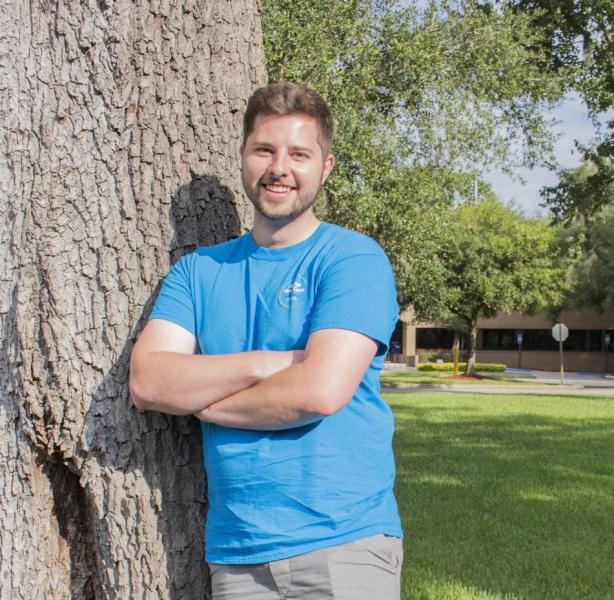Healthy Babies, Healthy Communities
Community has always been important to me. Growing up in a small town in the middle of the least populated state in the US, I learned quickly that taking care of the people around me was something that I found rewarding. Leaving Wyoming was scary, but when I entered the National Health Corps, one of the things I looked forward to most was becoming part of a new community. Through my service at my host site, I hope to improve the health of the Jacksonville community. My host site is University of Florida Jacksonville Health, where I serve in Women’s Services in the hospital. I interact most often with the Mother and Baby Services department. Along with general obstetrics and a birthing center, this department has a wide range of resources available for families. These include fetal and genetic testing, general obstetrics, birthing and new parent classes, and high-risk care.
the Jacksonville community. My host site is University of Florida Jacksonville Health, where I serve in Women’s Services in the hospital. I interact most often with the Mother and Baby Services department. Along with general obstetrics and a birthing center, this department has a wide range of resources available for families. These include fetal and genetic testing, general obstetrics, birthing and new parent classes, and high-risk care.
I believe that healthy communities start with healthy babies. Part of my host site service includes talking with parents during their very first prenatal appointment. Some are racked with worry. Some are bouncing with excitement. Some have been through this before and have a lot of experience. However, they all want the best for their child. When I speak with them, I get to offer education on a wide variety of topics such as nutrition, transportation assistance, and community resources. The goal of providing this education is to improve the health of many families and thus the community as a whole.
Recently I spoke with a pregnant woman who smokes a pack of cigarettes a day. After discussing it with her, I realized she knew that this was not the best for her or her child. She was unsure of how to quit and was scared of relapsing into a more serious addiction if she quit cold turkey. I helped her develop a plan to reduce her cigarette use. At the end of our session, she had tears in her eyes when she thanked me for listening to her and understanding that she didn’t want to hurt her baby. Moments like this can seem small, but they make a big difference in the health of the family.
Another important part of my host site service is speaking to mothers after their baby is delivered. This conversation is always a little awkward. I’ve never had a child myself, so oftentimes I question whether I’m really qualified to be giving information about how to calm a crying baby or the safest way for a baby to sleep. However, every time a parent says, “Wow, I didn’t know that” or “Thank you so much, I think that will really help me,” it makes the initial awkwardness fade away. I feel very thankful that I am able to help families be healthier from the time they come to their first appointment, to when they leave the hospital with a baby in their arms.
The month of November is National Diabetes month, and I would also like to highlight a condition that affects many pregnant women. According to the CDC, gestational diabetes occurs when a woman develops high blood sugar levels during her pregnancy. Women at risk for gestational diabetes are those who are overweight, those who are over the age of 25, and those who have a family history of Type 2 Diabetes. Most women with gestational diabetes have healthy babies. However, if the condition is uncontrolled it can cause problems. These may include excessive birth weight or an increased risk for Type 2 diabetes later in life for both mother and child.
I often provide nutrition and exercise information to women at their prenatal appointments. Gestational diabetes is a condition to be discussed with the medical provider managing the pregnancy. Expecting parents may be able to decrease the risk of developing the condition. Eating whole grains like brown rice instead of refined grains like white rice is one strategy. In combination with a healthy diet, pregnant women are able to participate in moderate exercise as long as it has been cleared with their medical provider. Moderate exercise includes jogging, swimming, biking, and lifting weights that don’t cause too much strain. Lifestyle changes are never easy. Just as smoking one less cigarette a day improves health, small daily acts like walking for thirty minutes in an effort to increase healthy habits can make a big difference when it comes to prevention of conditions like gestational diabetes.
I serve with a fellow National Health Corps AmeriCorps member, Janki Patel, and we recently taught a class at River Region Human Services, which is another NHC host site. The class focused on different community programs that offer services for families and mothers in the Jacksonville area. One of the videos shared the sentiment that “we help to build strong mothers who raise strong children that become strong parents.” This really resonated with me and is something I hope to embody throughout my service term. A healthy community doesn’t just spring into existence. It is created through a domino effect, and I’m so grateful to be one of the people involved in helping improve the health of the Jacksonville community.

This post was authored by NHC Florida member Reed Campbell.
Reed serves at UF Health at Jacksonville - Healthy Start as a Care Coordinator.